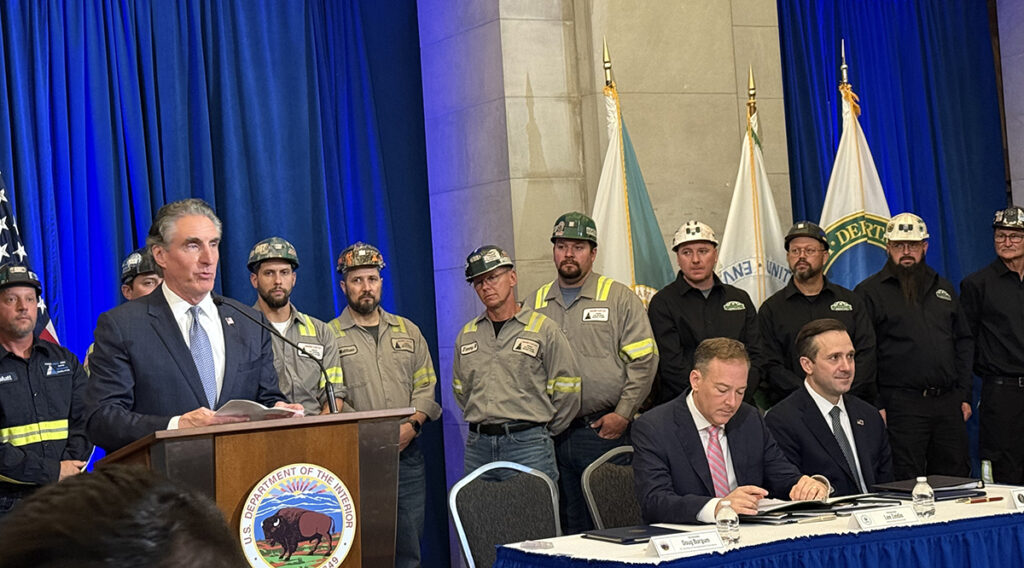
Leaders from several electric cooperatives gathered at the Department of the Interior on Monday as the Trump administration announced new steps to bolster energy reliability and affordability amid climbing power demand.
As part of the actions, the Environmental Protection Agency will propose extending compliance timelines for its power plant wastewater rule. The EPA will also seek public input on how to streamline implementation of its regional haze rule.
Both rules pose operational and cost challenges for some co-ops and risk the premature retirement of needed generation.
“As electricity demand skyrockets, smart energy policies that help keep the lights on are more important than ever,” NRECA CEO Jim Matheson said. “Today’s announcements give electric co-ops important flexibility to reliably meet growing energy needs at a cost local families and businesses can afford.”
The wastewater rule requires plants to install unproven and prohibitively expensive technologies after utilities have already made substantial investments to comply with prior standards.
The rule was among those that NRECA asked the EPA to reconsider after President Donald Trump took office in January, with the EPA already taking action this year to roll back or revise the Biden administration’s power plant greenhouse gas rule and emissions standards for mercury and nitrogen oxide.
Also on Monday, the Department of Energy said it will provide $625 million to support coal-fired power plants. More than half the funding is set aside to recommission or modernize existing units, with the rest available for advanced wastewater management systems and enabling coal plants to co-fire with other fuels.
The Interior Department also said it will open more federal lands for coal production leases.
The agency actions come as the North American Electric Reliability Corp. projects peak power demand to jump 17% in the next decade while over 115,000 megawatts of always-available generation—enough to power about 100 million homes—is expected to retire. Demand growth in the coming years could be further accelerated as new data centers come online.
“In recent years, misguided energy policies have forced essential power plants off the grid, while electricity demand surged,” Matheson said. “We thank the administration for moving swiftly to respond to growing energy needs with an emphasis on new tools, flexibility and a pro-energy policy agenda.”
Molly Christian is a staff writer for NRECA.